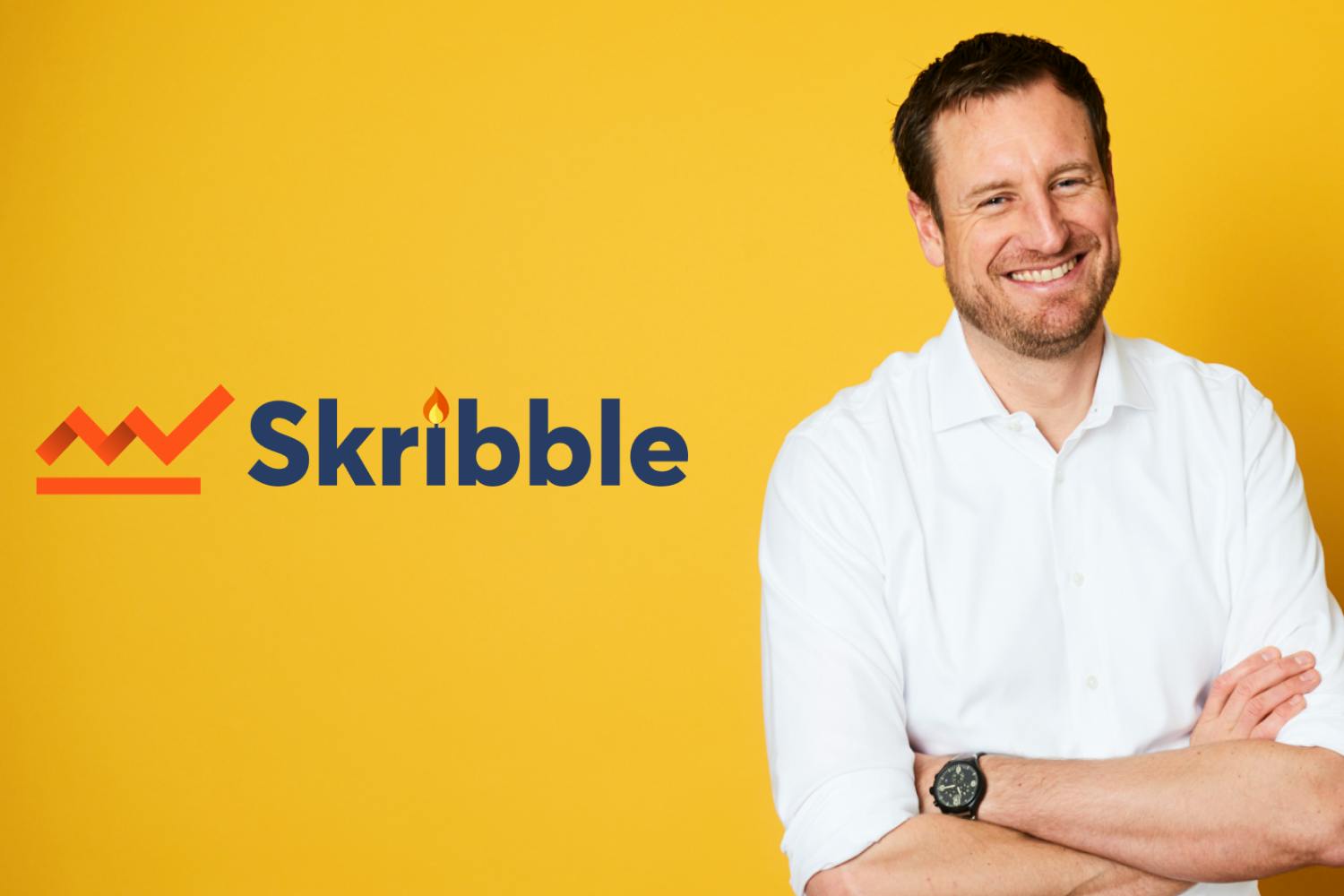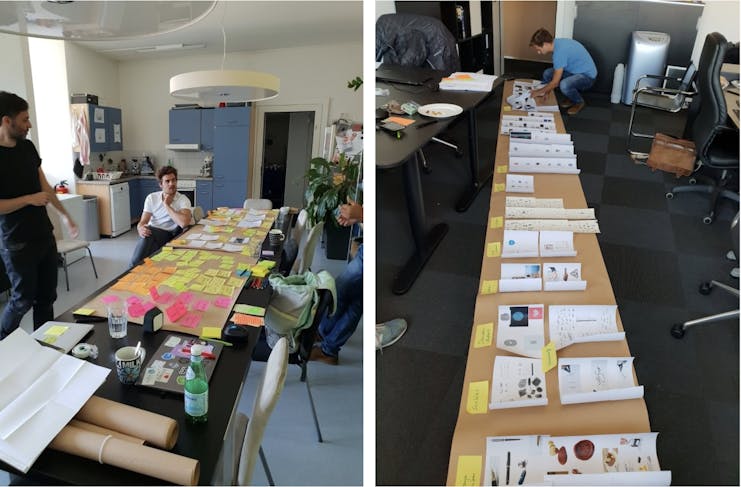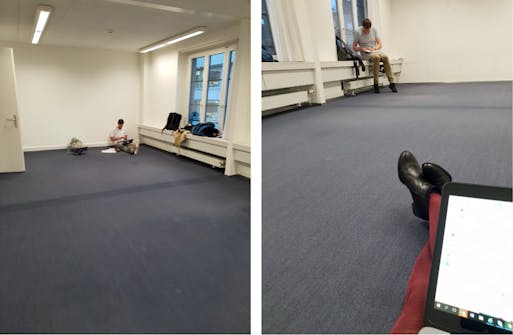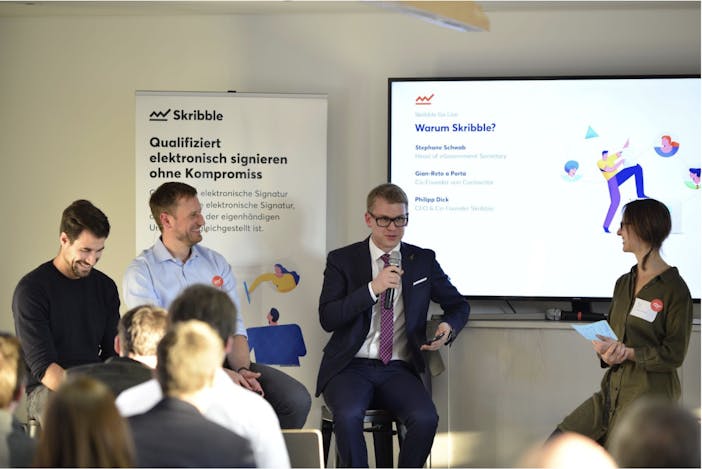Skribble celebrates its fourth anniversary

Where has the time gone? It’s already been four years since Skribble was founded on 16 March 2018. One year later, on 27 March 2019, we went live with our e-signing platform. Today, Skribble is a Swiss market leader and is expanding into the DACH region and throughout Europe.
Philipp, how do you feel when you think about all that Skribble has achieved in such a short time?
It fills me with joy and pride to see what we have put together as a team. Sometimes I can hardly believe it myself. Of course, when we started out, I did have a rough idea of how I wanted things to be. But to see a huge part of that now made a reality is – well, I don’t know how else to put it – crazy and overwhelming.
Have your expectations been met?
That and more. At first, I had rather low expectations, but I made up for that with big dreams: we wanted to create a company that would overcome a genuine pain and would be viewed this way on the market. Moreover, we wanted to grow internationally, and perhaps even achieve unicorn status… and we’re currently well on our way to making all that happen.
Why do you think Skribble has been able to achieve such successes?
We have established a company with a great culture – our employees are passionate about their jobs and work together to develop Skribble further. That’s incredibly valuable and is something we need to keep hold of. The business model also works. The combination of these two aspects is absolutely essential and is what makes this success possible in the first place.
What makes Skribble different?
We move very quickly. That’s something I see when speaking with other founders. People in a similar position I was asking for advice two years ago now suddenly approach us and want to know our secret to success (laughs).
Do you consider these kinds of situations moments of success?
Yes! But that’s not all they are. It’s also strange. Suddenly, over 50 people are all looking to me for direction. It’s a new feeling for me and it’s not always easy to deal with (smiles). It’s my aspiration for Skribble to have flat hierarchies. And yet, as CEO, it’s my responsibility to take everyone with me on this journey and to make sure that the work we do continues to be enjoyable and meaningful.
In which areas do you still see room for potential?
I would like to improve myself in my role as CEO. I can be demanding and place high expectations on myself and my environment, which can turn out be a lot of pressure – pressure that then tends to inhibit the team rather than motivate them. And: I see still see room for improvement when it comes to ‘celebrating success’ at Skribble. In future, I want to lead by example more often in that regard. It is and remains a key part of the overall picture, especially in relation to preserving our spirit. It’s not always an easy task for me, as my thoughts are always already two years into the future (laughs).
Fun Fact 1
You once said you were allergic to paper and that that’s where you got the idea for Skribble – you even pretended to have a coughing fit. What’s that all about?
(laughs) That’s exactly right! Even now, I still break out whenever I think of paper. Signing things on paper just doesn’t work anymore today – I don’t see the sense in it. And by that I mean everything that has to be signed contractually. And while I haven’t written any love letters for a long time (or maybe I should?), I would then consider that to be the only good reason to overcome my allergy. Otherwise, I just don’t see any room for pen and paper in the digital world.
So is your paper allergy the reason Skribble came to be?
Let’s put it this way – it’s definitely not entirely unrelated. When we founded Skribble, we wanted to overcome a core ‘pain’: to create a solution for the qualified electronic signature (QES) that was easy to understand and could be implemented straight away. We knew that there was a huge European market for the QES – but all of the solutions available at the time were too complicated or required major IT effort on the part of their end customers. Unlike at Skribble, where everything is included right from the start – while still being intuitive and platform-independent.
What happened next?
As more and more customers came to us, we realised that we were unable to cover all applications. Some customers didn’t need a QES – also because this partially slowed down business due to the elaborate identification process. This led to us expanding our offer to include the simple and advanced e-signature, meaning that since April 2020, we have been able to offer all legally defined e-signature standards in the EU and Switzerland from a single source.
How has this affected business operations?
It didn’t take long to receive confirmation from the market: our user experience (UX) went down very well, and with the premium QES discipline we had already established the basis of trust we needed the first time around. Now, customers who mainly wanted to use the simple (EES) or advanced (FES) electronic signature were also coming to us.
And today? What do you consider our major USP?
We offer all e-signing standards from a single source – and do so with a top UX along with maximum security and the highest standard of data protection. With Skribble, there’s no need to make any compromises. Not only do we make e-signing as easy as ever possible for our users, but we also make internal roll-out and integration into existing systems easier for companies with our API and ready-to-use plug-ins.
What makes us different from the competition?
We combine different trust services (TS) and identity providers (IPs) under one roof, something that makes us unique across Europe. With the competition, you decide on – if you even get to decide – one TS and one IP. We vary the components behind this, meaning that we remain flexible and are able to offer every user the best experience with each signing process.
Fun Fact 2
The first round of funding in May 2019 took place in the same week that your twins were born. What do you remember about this week?
(Laughs) That’s right. That was a very intense time, even though I was actually taking a two-week holiday and my focus was on my wife and the twins. Luckily, I was able to rely on a great team to have my back. And that hasn’t changed even today.
When you look back on the milestones you have achieved, what has been the best moment?
The go-live in March 2019 was a big moment. We had put together an excellent team and the service was finally ready for launch. But for me, the biggest milestone comes at the end of every year: looking back and seeing the assurance that we continue to maintain a constructive company culture and, through Skribble, are solving a real problem. I’m incredibly proud of that.
What milestones await us in 2022?
We’re currently working on the further roll-out of the signing without an account procedure. Signing with QES will then become a seamless experience when we integrate the identification fully into the user experience. In Switzerland, video and remote identification for QES is also finally possible from a legal standpoint – meaning anyone can save a trip to the identification authorities. In addition, we want to tap one or two additional markets in Europe.
Thank you, Phil, for sharing some of your valuable time with us. We look forward to celebrating our fourth anniversary!
An overview of some key milestones
- 2 January 2022: Welcome of our 50th employee, today’s number: 52
- 7 June 2021: Bank identification for QES in Germany
- 17 February 2021: Plug-ins for Microsoft OneDrive, SharePoint and Google Drivee
- 21. Januar 2021: Video-Identifikation für QES nach EU-Gesetz
- 1 April 2020: Coverage for all e-signature standards (EES, FES, QES)
- 15 October 2019: Launch von Skribble Business
- 27 March 2019: Go-live of e-signature platform
- 1 June 2018: Partnership with Swisscom for QES
How it all began...

Summer 2018
The first employees join Skibble.

Autumn 2018
First working day in our first Skribble Office

Spring 2019
Skribble is live! Go-live Event with our first customers and investors

